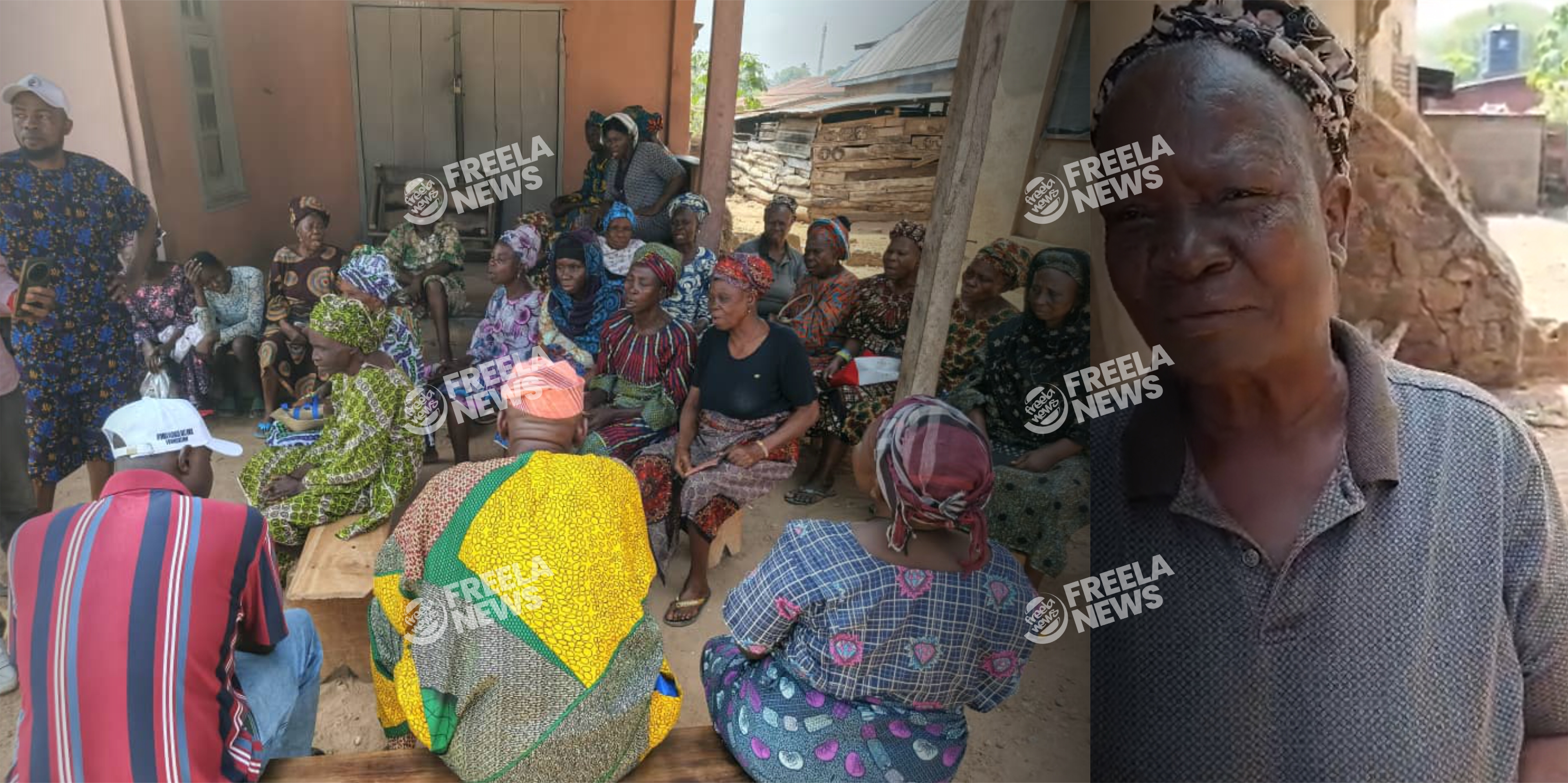President Bola Tinubu has declared a national emergency on food security, urging expanded irrigation and participatory water management across Nigeria
[dropcap]P[/dropcap]resident Bola Tinubu has declared a national emergency on food security, advocating for a significant expansion of irrigation infrastructure and the implementation of participatory water resource management strategies nationwide.
Also read: President Tinubu meets US officials in Paris, discusses regional security
The President made this declaration on Monday while inaugurating the 6th African Regional Conference on Irrigation and Drainage held in Abuja.
He was represented at the event by the Secretary to the Government of the Federation, George Akume.
President Tinubu urged African nations to embrace innovative strategies to effectively tackle the continent’s pressing challenges in irrigation development and water management.
He described the conference’s theme, “Tackling Irrigation Development and Water Management Crisis in Africa”, as a crucial call to action aimed at achieving sustainable agriculture and bolstering economic resilience across the continent.
“Africa continues to face major challenges in unlocking its irrigation potential due to inadequate infrastructure, financial constraints, climate change, and governance issues,” the President stated. “This conference offers a vital platform for us to collectively chart a path forward.”
President Tinubu highlighted Nigeria’s potential, noting that the country possesses over 3.1 million hectares of irrigable land strategically located around key river basins such as the Niger and Benue.
In his address, the Minister of Water Resources and Sanitation, Professor Joseph Utsev, announced that the government had successfully completed several significant initiatives under the Transforming Irrigation Management in Nigeria (TRIMING) project.
He further revealed that its successor project, the Sustainable Power and Irrigation for Nigeria (SPIN) project, would address remaining gaps while optimising the economic value of water resources to enhance food security.
“With the TRIMING project winding down, Nigeria is poised to begin implementation of the SPIN project in partnership with the World Bank,” Professor Utsev announced. “This initiative will consolidate on the successes of TRIMING and expand our irrigation potential.”
According to the Minister, the TRIMING project, which spanned over seven years, achieved notable milestones, including the completion of the Dadin-Kowa and Bakolori irrigation schemes and the 90 percent completion of the Middle Rima Valley irrigation project.
It also provided support for ongoing interventions in Ondo, Kwara, Benue, Kebbi, Edo, Adamawa, and Oyo states.
Professor Utsev also highlighted that the TRIMING project facilitated the establishment of Water Users Associations and farmer management centres, and supported vital market linkages for key agricultural value chains such as rice and tomato.
The Minister further revealed that the River Basin Development Authorities had developed over 153,000 hectares of irrigable land and were undergoing partial commercialisation to attract crucial private sector investment.
He also referenced the 2025 Flood Outlook and Risk Management Strategy, which is aimed at minimising the detrimental impacts of flooding on agricultural activities.
“This conference is a platform for knowledge exchange, innovation, and collective commitment to resolving Africa’s pressing irrigation and water management issues,” Professor Utsev added.
The Head of the Civil Service of the Federation, Dr Didi Wilson-Jack, called for a renewed commitment across all levels of government to ensure national food security.
Former Permanent Secretary of the Ministry of Water Resources, Mr Godknows Igali, underscored the urgent need for strategic planning, particularly in light of Nigeria’s rapidly growing population.
He stressed the importance of professional staffing and effective management of river basins, adding that sub-national governments must play a proactive role in water governance and food systems.
Governor Babagana Zulum of Borno State raised significant concerns regarding the shrinking farming seasons caused by the escalating effects of climate change.
He warned that unpredictable rainfall patterns were creating considerable uncertainty among farmers in the region.
“Our fertile lands are turning to dust. Irrigation is now a necessity, not a luxury,” Governor Zulum stated. “Innovation must not be seen as a privilege of the few; we must empower women and youth who are at the frontline of agriculture.”
He appealed to development partners to demonstrate greater responsiveness to the critical challenges of water access and rural farming across Africa.
President of the International Commission on Irrigation and Drainage, Dr Marco Arcieri, described the conference as both timely and essential.
“This could be a turning point. We’ve celebrated big ideas and set tangible goals to confront the pressing challenges,” Dr Arcieri stated. “We remain committed to supporting Africa as it faces population growth and climate stress.”
It is worth noting that Dr Arcieri had previously addressed participants at the Young Professionals’ Forum, a pre-conference event that brought together emerging leaders in irrigation and water management from across the African continent.
He emphasised the crucial role of young professionals in driving sustainable solutions to the continent’s water-related challenges.
Mr Ibrahim Musa, who leads the African Regional Working Group, expressed his optimism that the conference would lead to innovative approaches and actionable outcomes in addressing Africa’s unique irrigation development needs.
Also read: Energy Reforms Advocates applaud President Tinubu’s move to remove NNPC boss Mele Kyari
The conference is continuing in Abuja until April 17th, featuring technical sessions, policy dialogues, and field visits to various irrigation sites across Nigeria.
























